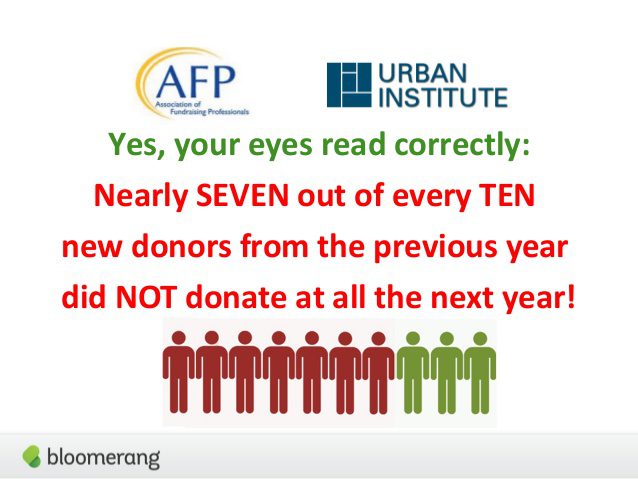 Is your nonprofit not getting the donations that you would like? The reason might be that you are not telling donors what they want to hear.
Is your nonprofit not getting the donations that you would like? The reason might be that you are not telling donors what they want to hear.
I’ll let you in on a secret: I read all the appeal letters you send to the Fischman household, and the great majority of them are focused on your nonprofit organization.
You bragged about what “we” accomplished. You told Rona and me about what “we” need.
And in each case, “we” meant the organization…not the Fischmans or any other donors.
This is an Opportunity!
The bad news is that by saying “we,” you are putting the donors on the outside and making them less likely to give. Donors don’t want to hear that you’re great without them. Why should they donate if you’re already doing so well?
The good news is that you can tell donors what they want to hear–which is that they matter.
Let Donors Hear the Difference They Make
Do donors really need to hear that they matter? Don’t just take it from me.
To create compelling stories for your nonprofit marketing, consider ways to make the audience the hero of the story. –Khaled Allen
Your donors don’t care about your campaign goal! -Tom Ahern
So what do donors care about? They care about themselves. Not in a selfish way, but in how they help your organization succeed. They want to know what difference their support makes. The impact their donation has on your ability to fulfill your mission. –Chad Barger
Why do superheros keep on going? Because they know something bad will happen if they stop. Making your donors the superheroes for your organization helps them understand they need to keep helping your cause, keep fighting the bad guys, and keep making the world a better place. –Kivi Leroux Miller
How You Can Say “You Matter” so They Hear It
 If you are using the word you more than the name of your agency, that’s a good first step. By itself, though, you won’t do the trick.
If you are using the word you more than the name of your agency, that’s a good first step. By itself, though, you won’t do the trick.
'We are a great agency, so you need to support us' is not making the donors feel they matter. Share on X
The key idea to express is “Because of you, the donor, this success story happens.” Draw a direct line between the donor’s decision to give and the lives saved, or the people helped, or the great work of art produced or performed.
It’s odd but true: the more you claim the credit, the less people feel inclined to give.
But please hear this: the more you step out of the way, the more you portray your organization as the donor’s tool for doing what they want done, the more likely your donors are to give. And to feel proud of themselves. And to give again.

